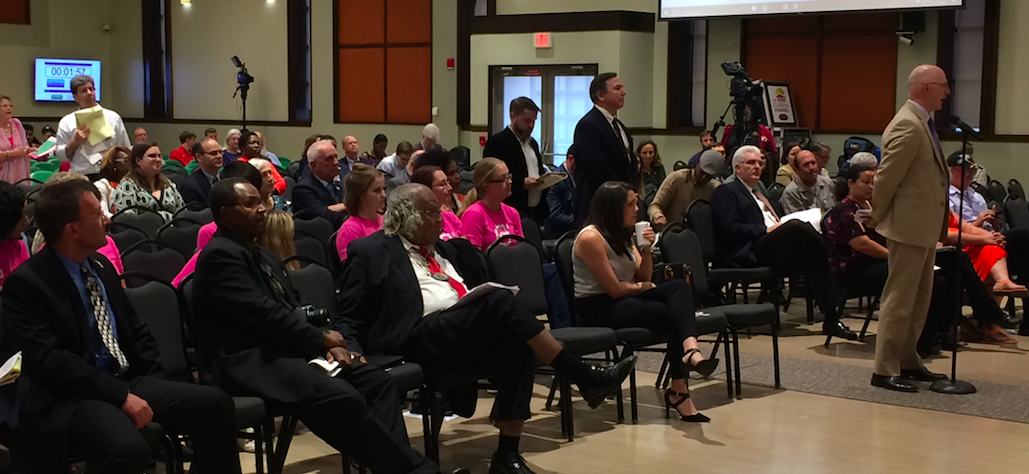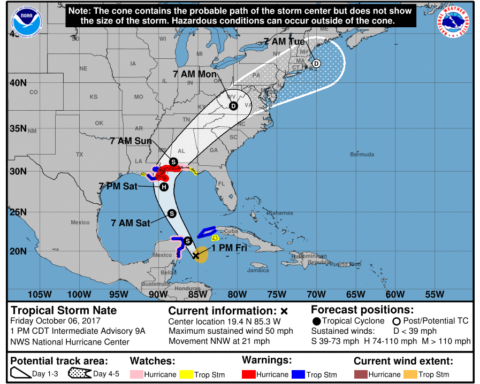The Senate’s plan to expand access to healthcare access may not pass during the 2015A special session but the Florida Senate isn’t going down without a fight.
The Senate Appropriations Committee members on Tuesday grilled Deputy Secretary for Medicaid Justin Senior for more than one hour, making it abundantly clear that the Senate did not appreciate what it considered to be political interference from the Agency for Health Care Administration and its Secretary Liz Dudek, whose boss is Gov. Rick Scott.
At issue: AHCA’s analysis of SB 2A, the amended FHIX plan. AHCA’s analysis — which was shared with the House on Monday before a three-hour afternoon meeting but not the Senate — notes that “federal approval of the program in its entirety as written is highly unlikely” and, furthermore, that the structure and benefit of the plan “make it uncertain whether the FHIX will provide more Floridians with health coverage or whether it will cause fewer Floridians to have coverage.”
Senate spokesperson Katie Betta said the Senate received its first copy of the analysis at 6:45 pm and not from the agency “but from the House after we asked some questions about Mr. Senior’s presentation before their committee.”
Initially, no one from AHCA had attended the Senate Appropriations meeting on Tuesday, which irked Appropriations Chair Tom Lee and others. When Senior appeared an hour into the meeting his presence didn’t assuage anyone’s anger.
Senior testified that he had appeared at the House Health and Human Services Committee on Monday because he was invited days before the meeting. He said that he had been given just “minutes” prior notice of the Senate meeting.
Committee chairman Tom Lee peppered Senior with a number of questions and, not liking any of Senior’s answers, chimed in with “You’re not much help, are you?”
And those were about the kindest words Senior heard in the committee all day.
Sen. Don Gaetz asked Senior, “Was your copy machine not working yesterday? You didn’t get (the analysis) to the sponsor of the bill before getting it to the critics of the bill?”
Sen. Arthenia Joyner asked Senior if either Gov. Scott or Agency for Health Care Administration Secretary Dudek had instructed AHCA staff to not work with the Senate on its healthcare proposal. Senior said that wasn’t the case.
Sen. Gwen Margolis, Dean of the Senate, said she was “aghast” at the situation. “Honest to goodness, aghast,” noting that the 160-member Legislature was in special session working on a budget due to AHCA’s handling of the Low Income Pool negotiations.
“We now have 160 members up here in Tallahassee costing I can’t tell you how much money and your agency sat there and you sat there and did nothing,” intoned Margolis. “Zero. Inconceivable to me.”
Ultimately, the committee passed the FHIX bill unanimously after tagging on an amendment that would “sunset” the program after July 2018. The amendment also establishes a nine-member commission–appointed by the governor and legislative leaders–to evaluate the health outcomes and fiscal impacts of the plan before determining whether it should keep going.
The sunset provision addresses concerns that the agency had flagged in its analysis of the measure regarding the structure of the premium assistance. FHIX products, the analysis notes, will have to comply with federal Affordable Care requirements, which means they cannot be medically underwritten.
However, the subsidies available to the newly eligible will be based on the agency’s risk adjustment process for HMOs, which means healthier people will have lower subsidies and less healthy people higher subsidies.
“Purchase choices will be distorted by the amount of subsidy available, and there is no mechanism to make sure plan revenue is adjusted for the relative risk to the plans enrollees,” the analysis reads. “A spiral could very likely ensue as plans try to raise their premiums to cover their costs. This would make FHIX products unaffordable for most of target population and could cause some enrollees to lose their coverage.”
Lee took Senior and his agency to task for compiling a staff analysis with “no quantitative analysis” and asked him to supply the Senate with the document used to compile the analysis.
Meanwhile, an analysis by Amy Baker, Economic and Demographic Research chief, showed that the net savings of adopting the FHIX program over 10 years is $1.1 billion.
In closing on the amended bill, SB 2A, FHIX sponsor state Sen. Aaron Bean said the approach allows Florida to prepare for fiscal year 2016-17 when it receives $600,000 in Low Income Pool from the federal government. In the 2014-15 year Florida received $2.2 billion in low income pool dollars. This year Florida is expected to receive $1 billion.
Bean said the FHIX plan helps Florida transition to an environment where the state doesn’t depend on LIP.
“If we don’t have a plan, we are gong to be here next year in multiple special sessions,” Bean said.
After the meeting Lee told reporters he wasn’t expecting the debate at the meeting to last as long as it did, but said he was “indignant” at Senior’s comments that he attended the House meeting because he was invited but not the Senate meeting.
Lee said that the agency “came out of the woodwork” on the FHIX debate and that AHCA was “doing the bidding of our colleagues of the House of Representatives.”
“That’s their role in this process and to not just own up to it and be honest about it … To me, be a man, and stand up there and be truthful about what it is you’re doing. It’s OK.”









